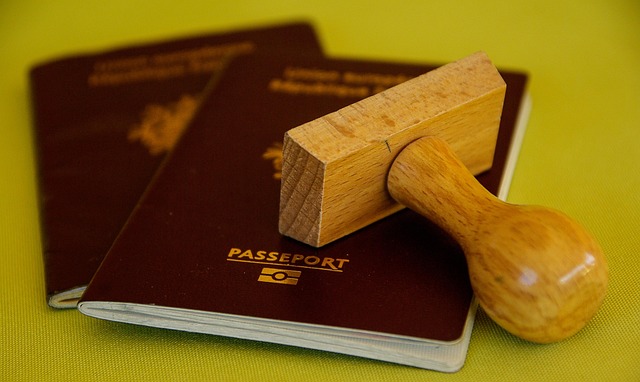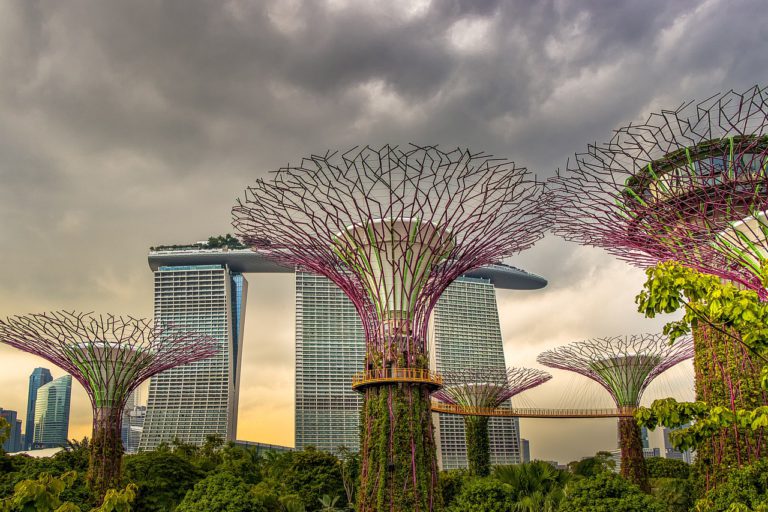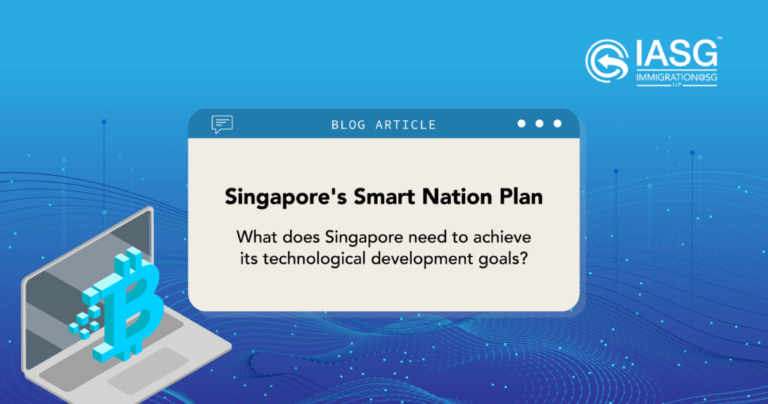Singapore passport tops global passport rankings every year , consistently offering its citizens visa-free or visa-on-arrival access to nearly all of the countries in the world. This reflects decades of careful diplomacy, political stability, and a reputation for strong governance.
Unlike many other countries that fluctuate in the rankings, Singapore has maintained its lead by forging wide-ranging bilateral agreements, ensuring its citizens are trusted travellers across continents. The strength of the passport is both a symbol of the city-state’s international credibility and a practical advantage for its people, who enjoy unparalleled freedom of movement.
For Singaporeans, this global access is often taken for granted. But for others, the Singapore passport is seen as a golden key that unlocks opportunities for education, business, and lifestyle choices across borders worldwide. It is one of the reasons why so many aspire to settle in Singapore and eventually pursue citizenship.
The Measure of Passport Strength
Every year, the global passport ranking is released, sparking discussions about travel freedom, privilege, and international mobility. When a country’s passport is crowned the “world’s strongest,” it means more than just being able to travel freely, it represents global trust, diplomatic influence, and the lived realities of its citizens when they cross borders.
At its core, passport strength is measured by the number of destinations a citizen can visit without needing a visa in advance. Passports from countries such as Singapore have often topped the charts, and in the latest ranking, granting Singaporeans entry to 193 countries either visa-free or with a visa-on-arrival. Note, there are a total of 195 countries, including observer states Palestine and the Vatican CIty, giving Singaporeans access to all the countries in the world!
Beyond Travel Convenience
For travellers, this translates into an enormous reduction of bureaucratic hurdles: no long forms to fill, no weeks of waiting for approvals, no financial documents to prove solvency, and fewer restrictions at borders.
Yet, beyond convenience, a powerful passport is a reflection of a nation’s reputation and stability. Visa-free access is not granted lightly. It is the outcome of years of diplomatic negotiations, trade agreements, and geopolitical trust.
The Global Reputation Factor
Countries that issue strong passports are often seen as low-risk in terms of illegal immigration, terrorism, or political instability. Their citizens are viewed as unlikely to overstay visas or burden host nations, which makes other governments more willing to open their doors.
For the individual, holding such a passport is a form of invisible privilege. A citizen from Singapore can book a last-minute trip to dozens of countries without a second thought, while someone from a nation with a weaker passport such as India may need to start the visa application process months in advance, often at high cost, with no guarantee of approval.
Hassles of Having a Weak Passport
On the other side of the spectrum, holding one of the world’s weakest passports can be a constant struggle. Citizens from countries such as Afghanistan, Syria, or Iraq often face enormous obstacles in international travel. Simple trips that others take for granted, like a short holiday, a business conference, or visiting family abroad, require extensive visa applications.
These applications often involve submitting bank statements, employment contracts, proof of assets, and even family records to demonstrate strong ties to home. Approval is never certain, and rejection is common. The process can also be expensive, with visa fees, translation costs, and travel to embassies adding up to hundreds of dollars.
Even when visas are granted, travellers with weaker passports may face longer interrogations at immigration checkpoints, stricter scrutiny, or outright prejudice. For many, the psychological burden of constantly proving their worth to travel is as exhausting as the paperwork itself. In effect, the weak passport becomes a barrier not just to mobility, but also to opportunity, dignity, and a sense of equal standing in the world.
Can Strong Passports Be Bought?
While most people inherit the strength of their passport by birth, some countries allow individuals to acquire stronger passports through wealth. Programs known as “citizenship-by-investment” (CBI) or “golden passports” enable foreigners to obtain citizenship in exchange for significant financial contributions, usually in the form of property purchases, government bonds, or direct donations.
Countries such as Malta and several Caribbean nations have run such programs, offering investors access to passports with relatively strong global mobility. For example, a Caribbean passport can provide visa-free entry to the European Union and parts of Asia, while Malta’s passport offers near top-tier access within Europe.
However, these schemes are controversial. Critics argue they create an unfair “two-tier system” where the wealthy can buy privileges that ordinary citizens of weaker passport countries will never access. Security concerns have also been raised, with the European Union warning that some programs could be exploited by criminals or politically exposed individuals. In recent years, tighter regulations and international scrutiny have caused some countries to scale back or even shut down their golden passport offerings.
In short, while strong passports can sometimes be “bought,” their legitimacy and acceptance often come with strings attached. True passport power, built on national reputation and trust, cannot simply be purchased – it must be earned over decades of diplomacy and stability.
Is This Why Many Want to Become Singapore Citizens?
Singapore consistently ranks at the very top of global passport indexes, giving its citizens visa-free or visa-on-arrival access to nearly all major economies in the world. For many aspiring immigrants, this is a strong incentive to seek Singaporean citizenship. A Singapore passport not only opens doors to over 190 countries but also provides access to one of the world’s most stable, well-connected, and respected nations.
For foreign professionals, permanent residents, and long-term migrants, the allure goes beyond the country’s economic opportunities and quality of life, it is also about global mobility. In a world where nationality can determine whether you face long queues at consulates or glide through airports with minimal fuss, holding a Singapore passport is life-changing. It transforms the way people can plan their careers, education, business ventures, and family lives across borders.
That said, Singapore does not offer citizenship lightly. Unlike countries that run “golden passport” schemes, Singapore requires years of residency, economic contribution, and integration into society before granting citizenship. This makes its passport not only highly sought-after but also highly respected, as it cannot simply be bought.
How Passport Power Shapes Lives
This difference shapes how people live, work, and see the world. A strong passport expands opportunities for education abroad, international careers, medical travel, and even spontaneous leisure. A weaker passport, by contrast, can limit dreams and close doors before they are even opened.
Having a strong passport like Singapore also accords its holder respect or an elite status in the eyes of the world.
Limits of a Strong Passport
Global Mobility Restrictions During Pandemic
However, passport power is not absolute. Having the world’s strongest passport does not guarantee a frictionless journey every time. Immigration officers still have discretion, and global crises can change rules overnight as seen during the COVID-19 pandemic when even the strongest passports could not bypass sudden travel bans.
Changes in Immigration Policies of a Country
Recent developments in international travel policies particularly in the United States have shown that even holders of the world’s strongest passports are not entirely immune to restrictions. Heightened border controls, evolving security measures, and stricter immigration scrutiny have affected travellers across the globe, regardless of their passport ranking.
While Singaporeans are not subject to any travel bans or specific entry or stay prohibitions in the United States, the overall tightening of immigration protocols has introduced new layers of complexity. Travellers have reported lengthier interviews, more detailed questioning regarding their purpose of visit and inquiries into their personal financial situations, such as bank account balances or employment status.
For many Singaporeans who have been accustomed to efficient, rules-based systems and generally smooth international travel, these experiences can be unexpectedly intrusive and uncomfortable. They underscore a broader reality: passport strength guarantees access, but not always ease. As global security concerns grow, even citizens of trusted nations may face heightened scrutiny at borders, reflecting the increasingly cautious stance many countries are adopting toward immigration and international movement.
Immigration Profiling at Borders
Strength on paper does not erase the complexities of identity, as race, religion, and nationality can still influence how travellers are treated at borders. While a strong passport provides legal access, it does not guarantee equal treatment during the immigration process.
Across many major airports, immigration profiling remains a subtle yet persistent practice. Border control officers exercise wide discretionary authority, assessing travellers based not only on their documentation but also on perceived risk factors often shaped by global politics, media narratives, and security alerts. As a result, individuals may experience varying degrees of scrutiny depending on how they are perceived.
For example, Muslim travellers may face additional questioning or security checks in some Western countries due to lingering post-9/11 security sensitivities. Similarly, ethnic Chinese travellers have occasionally been subjected to increased scrutiny amid rising geopolitical tensions and concerns over espionage or data security, especially when visiting the United States or parts of Europe.
Meanwhile, travellers from countries associated with high levels of online fraud or human trafficking may find themselves questioned more thoroughly about their finances, employment, or reason for travel. Such profiling often extends to their digital footprints, with officers sometimes reviewing itineraries, accommodation details, and even social media presence to verify intent.
These examples illustrate that immigration control is shaped as much by perception as by policy. Even holders of top-ranked passports, such as Singaporeans, can face uncomfortable levels of scrutiny depending on how their identity intersects with current geopolitical narratives. Ultimately, while passport power ensures access, it cannot entirely shield travellers from the biases and security protocols that define modern border control.
While these limitations may affect travel experiences, strong passport holders still have it better than others.
The Freedom to Move
In the end, to hold the world’s strongest passport means freedom, access, and trust on an international scale. It is both a practical advantage and a symbol of a country’s standing in the global community.
For many, it represents mobility taken for granted; for others, it is a reminder of the unequal value placed on citizenship across the world. Passport rankings may shift year by year, but the meaning behind them remains constant: the power of a passport is, ultimately, the power to move.







